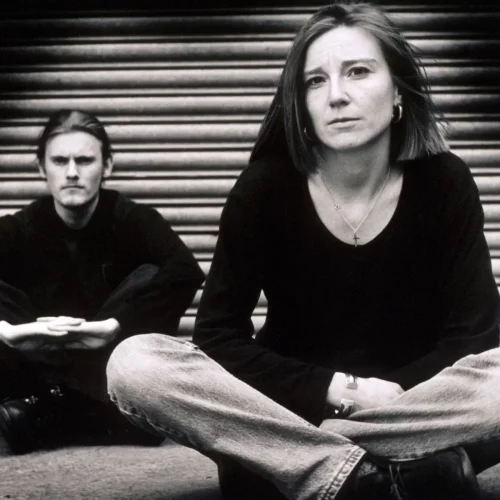Are we there yet?
Undoubtedly, reading this question likely conjures one imagined scenario: A long, less-than-exhilarating road trip, where anticipation of some form of accomplishment or great adventure fuels and fills the passing miles.
One could argue that life is a nearly-imperceptible reflection of a long, arduous road trip, and that is precisely where Portishead chauffeurs the listener on their clock-stopping, turn-you-eyeballs-inward “Roads.”
Most people exit their teen years with some version of a roadmap on which they will lean, utilize, check, and re-check as they wile away the years. Of course all of the landmarks are clear: Graduation from something. Gainful, salary-based employment with plenty of vertical space. A singular, lifelong made-in-Hollywood relationship. 2.3 children. And on and on. And on.
On “Roads,” Portishead’s Beth Gibbons, known for sultry, slow-drip vocals that somehow ooze at once power and frailty, seems to be sounding the siren.
At very least she’s issuing the 4-minute warning about the perilous futility of attempting to map out one’s future, of the “do it because it’s right and everyone else does it” mindset that leaves people lost, confused, isolated, and alienated.
As lonesome as the downtempo, solitary Rhodes piano intro (go ahead and connect the dots between the intro and the title,) a cry of accepted defeat greets the listener from the first verse, as Gibbons gasps
Oh, can’t anybody see?
We’ve got a war to fight
We’ve never found our way
Regardless of what they say
Who are “they”? More than likely, “they” are the millions responsible for the cartography of Western lifestyle. The ideals of a “perfect” life. Seemingly, Gibbons is at the crossroads of ignorance and enlightenment – she knows, has known, the path(s) to take to ensure a shiny, happy existence. And now she’s seeing – perhaps for the first time – that the map isn’t without flaw. New roads have been built, old roads overgrown, and some roads impassable to certain travelers.
Guitarist Adrian Utley’s lingering, tearful notes communicate pensive uncertainty as clear as Gibbon’s lyrics, as the chorus of how can it feel this wrong? From this moment, how can it feel this wrong? plunges with slow precision, deep enough to hurt but sharp enough to barely leave a mark.
The truth that Gibbons is likely trying to reconcile is that there is no there. There is only the feeling of not being there yet. There is no top rung on the ladder. There is no destination. Mile markers – literal and figurative – will always be followed by another, even if the name of the highway changes. We might be hearing the plight of a woman who realizes that she can possibly drive straight or in circles until she runs out of gas, as she realizes her tortured truth, shuttering
I’ve got nobody on my side and surely that ain’t right
Surely that ain’t right.
Even with a destination mapped out, that destination is going to hold a new route, with more miles to cover, searching for the one thing that doesn’t lurk behind a job title, or a mortgage-burning party, or any of your 2.3 children. And that one thing is arguably the most elusive and easy-to-miss roadside attraction: Peace of mind.







